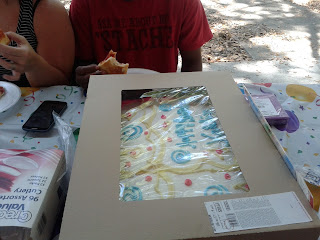Cultural competent nursing.
Nathaniel Hawthorne made a statement in his writings that all nurses should heed “It is essential to know man; it would seem before attempting to do him good” (Dennis & Small, 2003, p.1). A relationship is created every time a nurse walks into a patient’s room. For the nurse patient relationship to be therapeutic for the patient, a nurse must have knowledge regarding culture of the patient, the employer and self. Culture “includes values, beliefs, attitudes, customs, rituals, and behaviors” (Dennis & Small, 2003, p.1). Culture can also vary “within age, gender, religion and social class” (Dennis & Small, 2003, p.1). Without knowledge of culture the nurse will provide substandard or even dangerous care. Nurse practicing in the United States face challenges regarding cultural care, nurses in other parts of the world may not necessarily encounter. America is the only nation in the word were multiple cultures live together and assimilation of culture often occurs making individual part of one culture as well as many subcultures(Dennis & Small, 2003).
An important aspect of culture competent is an understanding by the nurse that comprehension of new ideas, different people, and experiences occur from the value system currently held by the nurse. “Knowing what our values are helps us recognize the ways in which they effect our interactions with clients” (Dennis & Small, 2003, p.1). A value is a freely chosen behavior and standard that one tries to live up to and maintain. In addition to the nurses personal values, the values of the health care system affect the care of the patient. These values can include structural hierarchy, care giving priorities, dress and communication to name a few. The nurse must have an understanding of how the culture of the health care system, one’s personal culture and the patient’s culture impact the patient, to provide truly holistic individualized patient centered care. It is not the nurse’s job to judge what values the client holds as right or wrong, only to provide care that is specific and therapeutic for that client (Dennis & Small, 2003).
For a plan of care to be and successful adhered to by the client, it must be individualized to the patient and include social, cultural, and psychological needs of the person it was written for. How does a nurse gain cultural competence to include in the plan of care? One very effective method is through assessment and non- judgmental open ended questions. What does the patient eat? Who speaks for the client? What language does the patient speak? How does the patient identify themselves? How is respect shown? How does the client perceive their illness? Asking the client about what cultural and religious practices are significant to them? To provide truly meaningful therapeutic care a nurse must be willing to step out of their comfort zone and indentify road blocks that their own belief system may impose on the care they provide to their patients (Dennis & Small, 2003).
Dennis, P, J., Small, B, E. (2003). Incorporating cultural diversity in
nursing care: an action plan. ABNF, 14(1), 1-17. Retrieved from:
http://proquest.umi.com.ezproxy.liberty.edu:2048/pqdlink?vinst=PROD&fmt=4&startpag...
nursing care: an action plan. ABNF, 14(1), 1-17. Retrieved from:
http://proquest.umi.com.ezproxy.liberty.edu:2048/pqdlink?vinst=PROD&fmt=4&startpag...


